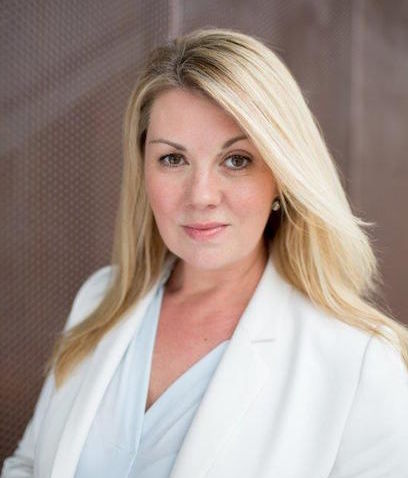Throughout her career, Angie Grissom, owner and chief relationship officer of the Rainmaker Companies, has taken a people-centered approach that serves as the focal point for how her company teaches and coaches accountants in how to generate more business.
Reframing the rainmaking mindset
Grissom’s teaching philosophy aims to help accountants “understand that ‘selling is helping,’” and the first step is focusing their mindset on that. In many cases, accountants have a preconceived negative view of sales as pushy, and she helps accountants instead focus on building relationships and deeper connections, reminding them that is actually something they have been doing since childhood.
The Rainmaker methodology ensures that changing this mindset is not approached as “one-size-fits-all situation” but rather as one that has “bring-your-own-authentic-voice” as a central tenant in developing the client relationship. This means having each individual connect to the reason why they decided to go into accounting and establish a level of comfort about sharing their experiences with existing clients and prospects.

Once accountants feel at ease about getting personal, then developing a unique client relationship can be the priority, with the first tool being to ask insightful questions from the onset of each interaction. “You weave business development and client service into the fabric of your day,” explains Grissom. “It’s not something extra. It’s not something more. It’s how you serve clients — and, it becomes fun because it’s who you are, it’s authentic, and your clients feel like friends.”
Developing leaders while generating business
The methodology also teaches leadership skills as part of the business development learning process. Part of this requires clients to teach the skills they have been taught, says Grissom, adding that “sharing knowledge with others is leadership.”
At the intersection of leadership and business development is self-awareness, which includes knowing your strengths and weaknesses, she says. Self-awareness, a critical skill in leadership, also helps in business development to create an openness to learning, a commitment to get better by learning from mistakes and figuring out what works for you. More specifically, Grissom details several mindsets as necessary skills for business development rainmaking:
-
-
- Persistence — In business development, you have to be willing to try new things, meet new people, and be persistent, even if you connect with somebody and they don’t respond to your email or your LinkedIn message the first time. A key component of this is reframing your view of rejection.
- Resilience — This involves understanding that you are not going to win every proposal. “Sometimes you lose clients, and sometimes you lose team members,” Grissom says. “But you’ve got to be willing to get back up. So, resilience in business development is really important because the more you get out there and try, even if you fail a little bit, the better you are.” At the Rainmaker Cos., being resilient includes analyzing what went well, where you made mistakes, and what did not go right.
- Experimentation — In business development (as well as other areas of work), experimenting with different approaches is another key element. A willingness to try the new technology, try new ways of leading people, manage new service offerings, and respond to the needs of clients are critical in business development.
-
Finally, Grissom uses structure and accountability tools to ensure accountants are successful in building these skills and overcoming fear, including revenue action plans and a behavior-accountability-results sheets. “We believe completely and fully in accountability and results,” she explains, adding that the use of these tools creates a structure for “behavior change so that students are more focused on the actions than the fear.”
The result is powerful because once her students realize they had more success than they thought they would, it reinforces their confidence.
Honing business development skills early
Young salespeople are told to Always be closing, while Grissom’s approach puts a twist on that by urging you accountants to Always be connecting. For young accountants and CPAs, Grissom advises that they build their network by meeting people at local, regional, and national industry events and connecting with others on in your profession on social media, as well as people they meet through civic activities.
For example, Grissom cites the connection efforts from a young entrepreneur, who reached out to her after they both judged an entrepreneurial contest at their alma mater. “He was persistent in getting the meeting scheduled, and during the meeting, he asked me questions and advice for his career,” she says. “After our meeting, he connected with me on LinkedIn.” To stay on her radar, he comments often on her social media posts and sends her regular updates.
To overcome any fear about putting yourself out there, you should remember that building your network is like training for a marathon, Grissom says, adding that a great way to start to build your skillset in business development — it takes practice and consistent effort.
“Get out there, build your network, ask questions of people and get to know them,” Grissom says. “Ask for advice and ask people who you should know that you don’t know.”




